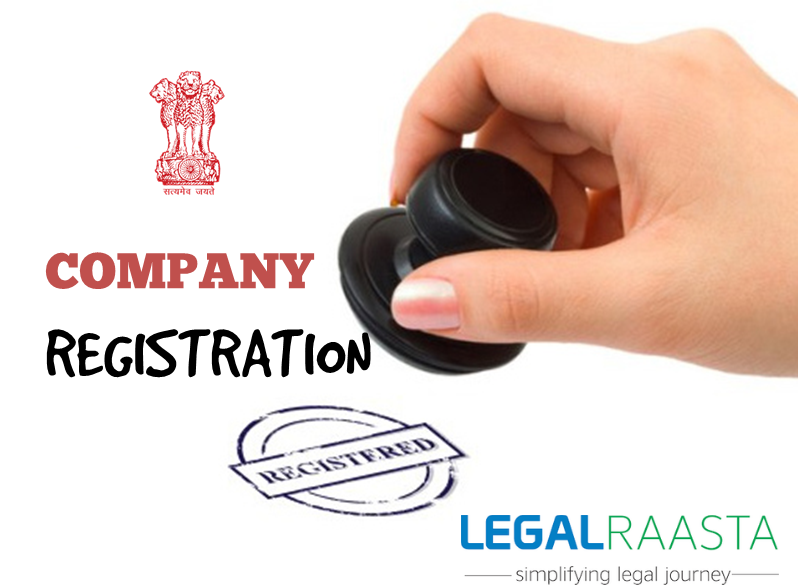How can I start a Private Limited Company?
Many questions spring to mind when the time comes to launch a new business or grow an existing one. The choice of your company's corporate identity is one of the most challenging undertakings. A
Private Limited Company (PLC) is thought of as a very popular business form among aspiring entrepreneurs and top sole proprietors in the nation after a public limited company. It is one of India's most important corporate legal identities. However, it is crucial to understand the specifics and significance of a private limited company before applying for a PLC. This article is broken down into three main sections depending on liability and covers everything from the registration process to the significance of a
Private Limited Company in India. Continue reading this article or get in touch with a LegalRaasta specialist for assistance if you need assistance finding the answers to all of your questions about registering a private limited business.
What is a Private Limited Company(PLC)?
The Companies Act of 2013 governs private limited companies. It is a corporation established in accordance with the Companies Act of 2013 or any other prior company law. According to section 2 (68) of the Companies Act, 2013, a PLC is a company whose articles of association restrict its share transferability and prevent the public from subscribing to the same. To put it simply, it is a privately held business entity by the shareholders, the number of whom should not exceed 200.
Characteristics of a private limited company registration
- Separate legal status: Other than its members and directors, a PLC has a separate legal position. Even if the shareholders (members) contributed the funds and assets of the company, the latter eventually became its property. With the company, even the members may engage into a contract.
- Permanent succession: The company's existence does not change despite the arrival and departure of members or even their deaths. This is so because the corporation was established by law and now has a different legal position than its founders. Up to its wound up, the company is still operating.
- Limited liability: A member's liability is limited to the amount they have put toward their paid-up share capital. However, based on the various business entities available for registration as a private limited company, the members' liability may also vary.
- Transferability of its shares: Even if a private limited company permits its members to contribute the majority of the capital, it restricts the transferability of its shares to the general public.
- Contracts with other people: A private limited company can make contracts with other people or corporations even though it is a fictional legal entity. Consequently, a common seal here serves as the company's signature. A common seal is, however, not required for a private limited corporation.
- Artificial legal entity: A Company is an artificial legal entity that the law has formed and endowed with human rights. As a result, a company can independently own real estate, open a bank account, obtain loans, amass debt, and enter into a variety of contracts.
Private limited company types
- Company limited by shares: According to section 2 (22) of the Companies Act, 2013, a company limited by shares is one in which each member's liability is only for the outstanding balance on the shares they own. As a result, the shareholders will be responsible to the degree that the Private Limited Company Registration fee is still owed.
- Company limited by guarantee: According to section 2 (21) of the Companies Act, 2013, a company limited by guarantee is one in which, in the event that it is wound up, the members' liability is only limited to the amount that they have contributed to the assets of the company as specified in the memorandum of association.
- Unlimited company: According to section 2 (92) of the Companies Act, 2013, an unlimited company is one in which a person's liability ends when they stop being a member. Therefore, the members are responsible for the whole amount of the company's obligations and liabilities. They will, however, be qualified to request donations from the other members.
Benefits Private Limited Company Registration
- Increased credibility: The company is a separate legal entity from its members, so the creditors cannot seek direct payment from the members’ business assets even if the company becomes bankrupt.
- Dual relationship: In a private limited company, a specific person can enter into various kinds of contracts simultaneously; that is, they can be a shareholder, member, creditor, employee, etc., of the company simultaneously.
- Easy to maintain: Several online accounting software has made it easy for a private limited company to maintain all its finances and accounting process.
- Flexible management: A lot of small business owners who lack the money to form a public limited company use flexible management. As a result, a small number of stockholders and a single business owner can manage the company successfully.
- Tax-effective: Private limited enterprises can deduct their profits from corporate taxes. As a result, they are regarded as being particularly tax efficient.
Process for Registering a Private Limited Company
- Filling out the documents with the registrar is the first step in the registration process. These documents include the articles of association, the memorandum of association, the declarations of the individuals involved in the registration process and the subscribers, the address for correspondence, the information regarding the first subscribers, the directors, etc.
- The registrar will issue a certificate of incorporation once the company has been successfully registered, proving that the intended business has been incorporated in accordance with this legislation.
- A Corporate Identity Number (CIN) will be assigned on and from the date specified in the company's certificate of registration. This CIN will serve to define the company's unique identity and will be listed in the certificate of incorporation.
Conclusion
A Private Limited Company is a legally recognized individual with restricted member responsibility, shares that cannot be transferred, and a maximum membership of 200. The firm can be broken down into three categories: an unlimited company, a company limited by shares, and a company limited by guarantee. The importance of a
Private Limited Company has steadily increased in India as a result of the rising number of start-ups and businesses. In this blog, we have outlined the significance of private limited company registration, and you can
consult a LegalRaasta expert for additional advice and assistance with the registration process.










